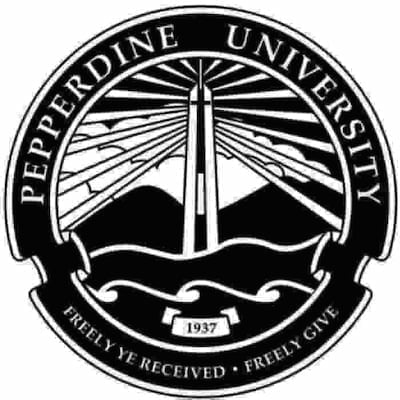As Pepperdine University sought a key approval Thursday from the California Coastal Commission for its major campus expansion project, former Malibu mayor Jefferson Wagner said he still harbors reservations at the university’s treatment of the city last year.
“Pepperdine is known for its wonderful lip service,” Wagner said.
It started in April, 2011, when university officials came before the Malibu City Council for its blessing on plans for the expansion, called the Campus Life Project.
Proposed is nearly 400,000 square feet of new development on 365 acres of existing campus land. The development would add 468 beds, expand athletic stadium seating by almost 2,000 to a total of 5,470 seats, add outdoor lighting to the women’s soccer field, build a welcome center and a nearly 800- space parking lot for the School of Law.
Homeowners in next-door Malibu Country Estates were skittish at the prospect of more unwanted traffic in an already busy area and the increased light pollution from revamped ballfields. Since then the residents have come to an agreement with the university that was “satisfactory to both parties” on light pollution and traffic nearby, said Dick Gary, president of the MCE HOA, Homeowners Association.
“The main traffic [on PCH] is really out of our jurisdiction and out of our purview,” Gary added. “We had serious concerns about using the arena for concerts but we established a maximum number of dates which they would do that.”
While Pepperdine actually sits outside the Malibu city limits, and thus its jurisdiction, the officials requested a vote of confidence from the City Council as a sign of the university’s good faith.
Convinced that increased traffic to the area would tax the time of local sheriff’s deputies, who are paid for by the City of Malibu, the City Council requested that Pepperdine pay for one part-time sheriff’s deputy to patrol the campus area eight hours per day in exchange for the City Council’s blessing. Wagner noted at the time that the city government is on a fixed $6.1 million contract with the Los Angeles County Sheriff’s Department, and any cost above that would be borne by Malibu taxpayers.
“We thought that was a very fair way to mitigate the traffic issue and the safety issue,” Wagner said. “Maybe he’s driving through the campus, he’s answering police calls to broken-in cars, broken hubcaps… His workload wouldn’t be that intense. Most of the homeowners agreed with that. Have a real cop around the campus.”
But Pepperdine attorney Cindy Starrett at the time said the university already provides an economic benefit to the city through sales tax revenue, employment to Malibu residents and volunteer activities in Malibu by Pepperdine students.
“This is a new concept to us that Pepperdine would be asked to pay the city a sort of tax per student,” Starrett said. “I think it’s something that we’d have to think about for a long time before we could come to any kind of agreement on that.”
The city ended up sending a letter of qualified support for the project to the Los Angeles County Regional Planning Commission. When Wagner approached Los Angeles Supervisor Zev Yaroslavsky about the idea ahead of its May 2011 hearing, he says the university pushed back.
“When I went to Zev, the school contested that, said we can’t afford it,” Wagner said. “My comeback to that was, hire one fewer campus security guard, and you won’t have any opposition from the city. So I feel a little dismayed with the outcome of the campus security, especially for the homeowners nearby.”
When asked for comment, Pepperdine University spokesperson Jerry Derloshon said in an email that after the City of Malibu’s request the university reached out to the Sheriff’s Department to find out if responding on calls to Pepperdine cost the department money.
“[The Sheriff ’s Department] confirmed that the City of Malibu is not losing Sheriff resources when deputies respond to calls at Pepperdine,” Derloshon wrote. “It is important to us at Pepperdine that we do our share in keeping our community safe. For this reason, we are pleased to provide support during traffic and medical events near campus, making our campus available for emergency air operations for the community, and assisting in material ways during natural disasters.”
Before Thursday’s hearing before the Coastal Commission, commission staff asked Pepperdine to amend the lighting standards in its Long Range Development Project, which the commission originally approved for the university in the 1980s, to reduce light pollution.
“Lighting shall be downward directed, shielded, energy efficient, dark-sky-compatible, and shall incorporate state-of-the-art improvements in lighting technology when replaced thereafter,” the proposed amendment for Thursday’s meeting said.
Wagner was unimpressed, remembering back to the sheriff’s deputy experience.
“All the, ‘Oh we’re going to aim the lighting down,’ Come on. It’s the same old lip service. That’s what we’re getting here.”

